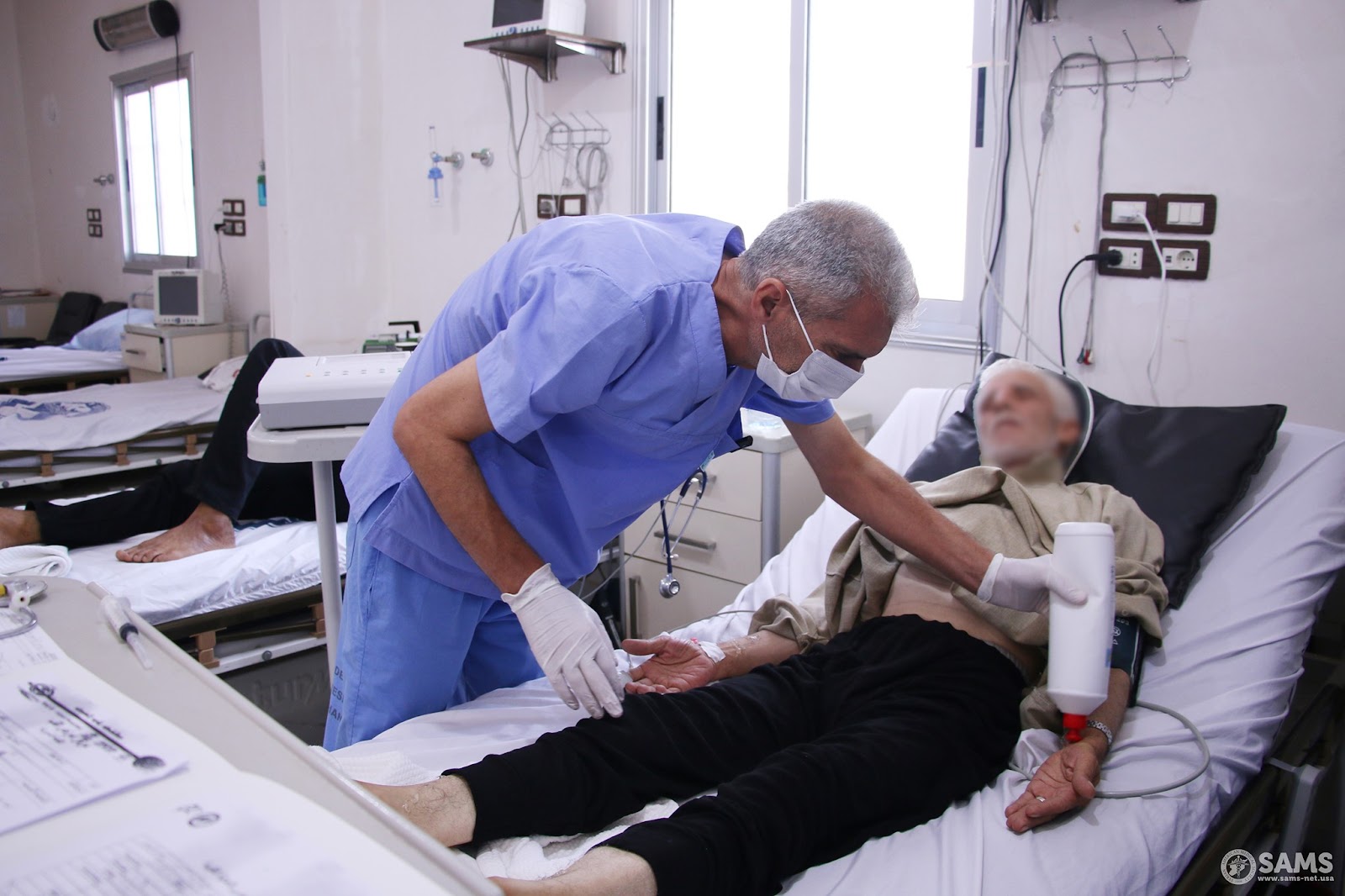
Northern Syria’s healthcare sector, already battered by more than a decade of war, faces the brink of collapse as critical aid cuts and a severe shortage of resources threaten to shutter hospitals and medical facilities that serve millions. The impending crisis, exacerbated by years of deliberate attacks on health infrastructure by Assad’s regime and its Russian allies, has left the region’s medical services hanging by a thread.
One of the most prominent facilities, Bab al-Hawa Hospital, issued a dire warning on Wednesday, September 4 stating that it may lose funding by the end of the month, imperiling its ability to serve the more than 1.7 million people who rely on it for essential medical care. In a statement, the hospital’s management cautioned that unless new funding is secured, it faces a “certain” halt in operations by month’s end.
“The hospital is working tirelessly, in cooperation with the Syrian American Medical Society (SAMS), to find alternative funding solutions,” the statement read. “But the threat of a complete shutdown looms large.”
Established 11 years ago, Bab al-Hawa Hospital has become the region’s cornerstone for both basic and advanced medical services. It offers primary care, specialized surgeries, oncology treatments, and emergency care, often serving as the last referral point for complex medical cases. Despite its crucial role.
The hospital’s closure would deliver a catastrophic blow to the local health system, particularly given the severe shortage of medical facilities in the region. The hospital administration emphasized the significance of continued operations, acknowledging the daily hardships endured by the population due to war, poverty, and deteriorating living conditions.
“We deeply regret the need to issue this statement at such a critical time,” the hospital’s administration said, urging for immediate support.
Bab al-Hawa’s plight is emblematic of the broader healthcare crisis facing northern Syria, where the effects of over a decade of war, combined with recent cuts in international aid, have left the system on the verge of collapse. Last June, Raed al-Saleh, the director of the White Helmets, warned that 112 medical facilities could close within months if funding is not restored. The shortfall in aid, he noted, had exceeded 60% in some sectors, leaving essential services underfunded and patients without care.
According to Idlib Health Director Dr. Zuhair Al-Qarat, around 70 medical facilities in Idlib and Aleppo have already shut down. “The health situation in Idlib is rapidly deteriorating,” he told Syria TV, noting that response projects established after the devastating February 2023 earthquake have already run their course. With global attention focused elsewhere, particularly on crises in Ukraine and Gaza, donors have scaled back support, leaving Syria’s medical infrastructure in tatters.
In July, healthcare workers in Idlib took to the streets to protest the United Nations’ decision to cut financial support to 10 health facilities, including hospitals in the cities of Killi, Al-Dana, Al-Janoudiya, and Barisha. Demonstrators held signs denouncing the international community’s abandonment of northern Syria, stressing that the loss of funding could result in the closure of vital facilities and the loss of countless lives.
“The health sector in northern Syria is on the verge of a complete meltdown,” one protester said. “If the world continues to turn its back, millions of people will be left without any medical care at all.”
The healthcare crisis in northern Syria is not merely a byproduct of the war but has been exacerbated by the deliberate targeting of health facilities by Assad’s regime and Russian forces. Since the conflict began in 2011, hospitals, clinics, and emergency responders have been regularly bombed, a tactic that human rights groups have condemned as a violation of international law.
The systemic targeting of medical infrastructure has had devastating effects, leaving large swaths of the population without access to basic healthcare. Despite these violations, aid cuts and a lack of international pressure on the Assad regime and its Russian backers have allowed the situation to spiral further out of control.
As Bab al-Hawa Hospital and others in the region fight to keep their doors open, the situation grows more urgent by the day. With international funding drying up and no immediate solution in sight, medical staff are working under increasingly dangerous and unsustainable conditions. The potential closure of more hospitals in the coming months will likely leave northern Syria’s population with nowhere to turn for critical care.
“The reality is grim,” Al-Qarat said. “Without urgent intervention from the international community, the entire healthcare system in northern Syria could collapse by the end of this year.”








